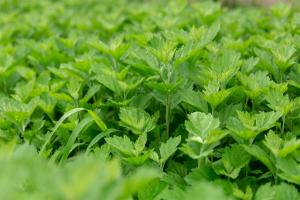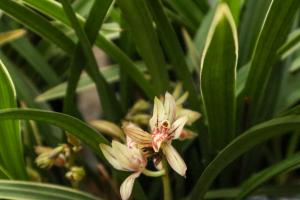Will Pool Water Hurt Plants?
Many people enjoy having a pool in their yard during the hot summer months. But for those who have a garden nearby, a common concern is whether or not the pool water can harm their plants. In this article, we will explore this question in depth and hopefully provide some helpful tips for pool owners with gardens.
Understanding the Chemical Composition of Pool Water
Pool water is typically treated with chemicals such as chlorine and algaecide to keep it clean and safe for swimming. These chemicals can also affect the pH levels of the water. While these treatments are necessary for a healthy pool environment, they can be harmful to plants if used improperly or in large amounts.
The chemical composition of the pool water can also be influenced by factors such as the type of pool, its size, the number of swimmers, and the surrounding environment. For example, if the pool is located near a high-traffic road, there may be more pollutants in the air that can affect water chemistry.
The Effects of Pool Water on Plants
So, how exactly does pool water affect plants? The answer depends on a few factors such as the type of plant, the frequency of exposure, and the amount of chemicals in the water.
Plants that are sensitive to changes in soil pH, such as acid-loving plants like azaleas and rhododendrons, may be affected by pool water with a high pH. If the pool water is particularly acidic, this can also harm plants that prefer neutral or alkaline soil. Over time, exposure to pool water can also cause the soil to become less suitable for planting altogether.
In addition to affecting soil pH, pool water can also contain high levels of chlorine and other chemicals that can cause damage to plant leaves and their overall growth. If the pool water is regularly splashed onto neighboring plants, this can cause them to wilt, yellow, or even die.
How to Protect Your Plants from Pool Water Damage
If you have a pool in your yard and wish to protect your plants from any potential damage, there are several steps you can take.
One option is to create a barrier between your plants and the pool water. This can be done by adding a layer of mulch or rocks around the perimeter of the pool. This will help prevent water from splashing onto the plants and prevent soil erosion caused by pool water runoff.
You can also choose to plant only pool-friendly plants in the immediate vicinity of the pool. These include plants that prefer moist soil and are resistant to changes in pH levels, such as water lilies, elephant ear, and iris. Be sure to research and select plants that are suited for your specific climate and growing conditions.
If you do notice any signs of damage to your plants, such as wilting or yellowing leaves, take action immediately. Rinse your plants with fresh water to remove any chemicals and consider watering them in the morning to dilute the amount of pool water they absorb during the day.
Conclusion
In conclusion, pool water can harm plants if it is not used properly or in excess. However, with the right precautions and plant selection, it is possible to enjoy both a healthy pool and a thriving garden. By understanding the chemical composition of pool water and its effects on plants, you can take the necessary steps to protect your plants and maintain a beautiful outdoor environment.

 how many times do yo...
how many times do yo... how many planted tre...
how many planted tre... how many pine trees ...
how many pine trees ... how many pecan trees...
how many pecan trees... how many plants comp...
how many plants comp... how many plants can ...
how many plants can ... how many plants and ...
how many plants and ... how many pepper plan...
how many pepper plan...
































